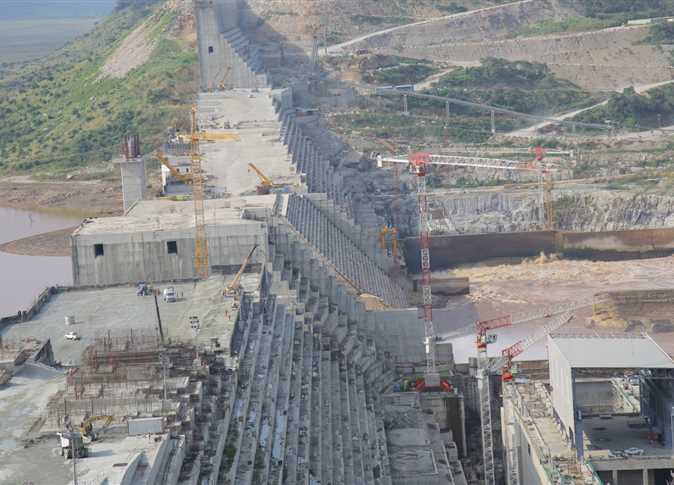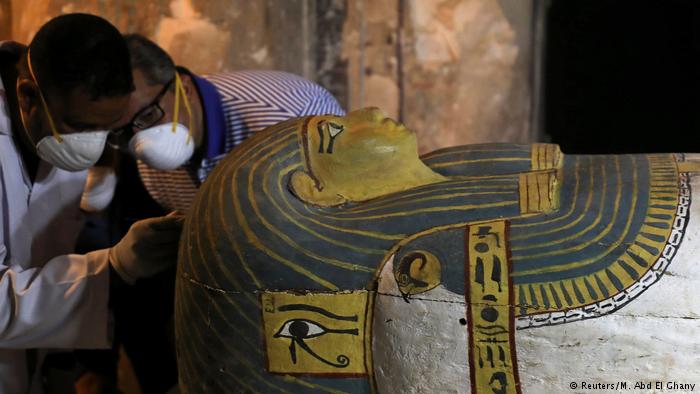
In a joint statement on Wednesday, following a meeting involving the Ministers of Irrigation and Foreign Affairs from Egypt and Sudan, both nations affirmed that the Ethiopian dam will bring severe consequences for downstream nations and is a continuous threat to the stability of the Eastern Nile Basin as per international law.
The statement noted that the serious risks associated with Ethiopia’s unilateral steps to fill and operate the dam, including concerns about its safety, uncontrolled water releases, and the ability to cope with droughts.
It stressed that Ethiopia must change its policy in the Eastern Nile Basin to restore cooperation among the basin countries.
Joint Sudanese/Egyptian front
Both sides also emphasized that the Ethiopian dam issue remains a problem between the three nations (Egypt, Sudan, and Ethiopia) and rejected any attempts to involve other basin countries in this contentious issue.
The discussions covered the current developments in the Nile River file and reviewed the results achieved from the first round of the “2+2 meetings” held in February.
Both sides reviewed aspects of water cooperation and ways to enhance them to serve the interests of both nations.
They agreed on the need to secure the water security of the two downstream nations and work together to fully preserve their water rights and usage, according to the legal framework governing the Nile River based on a shared principle of common interests and equal rights, in compliance with international law and the 1959 agreement between the two countries.
They also agreed to fully coordinate their positions in various regional and international forums, especially those related to their water rights.
The two sides emphasized that Sudanese and Egyptian water security are inseparable and an indivisible whole.
They reaffirmed their complete rejection of any unilateral moves in the Eastern Nile Basin that would harm their water interests. They also stressed the importance of enhancing consultation and coordination and continuing their joint efforts to work with the Nile Basin Initiative to restore consensus and return the initiative to its original consensual foundations.
They will work to preserve it as the comprehensive cooperation mechanism that includes all basin countries and serves as a pillar of water cooperation that benefits all nations of the Nile River Basin.
Worrying Ethiopian dam developments
The consultations also touched upon the developments in the Ethiopian dam.
Both parties agreed that the Ethiopian dam, which they stated violates international law, has serious consequences for the two downstream nations and poses a continuous threat to the stability of the Eastern Nile Basin, as per international law.
They specifically highlighted the serious risks resulting from Ethiopia’s unilateral steps to fill and operate the dam, its safety, uncontrolled water releases, and the ability to cope with droughts.
They affirmed that Ethiopia must change its policy in the Eastern Nile Basin to restore cooperation among the basin countries.
Both sides reiterated that the dam issue remains a problem between the three nations (Egypt, Sudan, and Ethiopia) and rejected any attempts to involve other basin countries in this contentious issue.
They also re-affirmed the alignment of their positions on matters of mutual interest, particularly the Nile Basin Initiative and its consultative mechanism for countries that have not joined the framework agreement.
And both sides reaffirmed the distinguished role of the Joint Permanent Technical Authority for Nile Water, established under the 1959 agreement.
This body is mandated with studying and formulating the unified position that the two nations adopt on matters related to Nile water. They also committed to ensuring the authority’s regular operation and providing it with technical and logistical support to enable it to perform its tasks as desired.
The next meeting of the authority is scheduled to take place this October on the sidelines of Cairo International Water Week.
Strengthening ties
The discussions also touched on the overall bilateral relations between both countries.
The two sides affirmed their commitment to strengthening and deepening the historic ties that bind their peoples and agreed on the importance of continuing reciprocal official visits at all levels.
They also affirmed their rejection of any threat to the unity and territorial integrity of Sudan and expressed their determination to enhance joint coordination to restore stability to Sudan.
The two sides discussed ways to enhance development projects to positively impact sectoral cooperation and efforts to improve it.
Sudan provided an explanation of the priorities and guidelines of the Sudanese Government of Hope in the reconstruction process.
Egypt expressed its support for all efforts by the Sudanese government in the reconstruction process, affirming its welcome for joint work to support various sectors in Sudan to achieve their shared interests, especially stability in Sudan.
The Sudanese side in turn valued the facilities that Egypt has provided, particularly regarding voluntary returns. It also appreciated the continuous official-level meetings to strengthen bilateral relations in various fields.
Both sides agreed to continue close coordination and consultation and to enhance training cooperation programs in various fields, including between the Egyptian Ministry of Water Resources and Irrigation and the Sudanese Ministry of Agriculture and Irrigation.
The Egyptian side welcomed the opportunity to meet the urgent training needs of the Sudanese Ministry of Agriculture and Irrigation personnel, as it is closely linked to reconstruction efforts in light of the outcomes of the meetings of the Joint Reconstruction Team.




